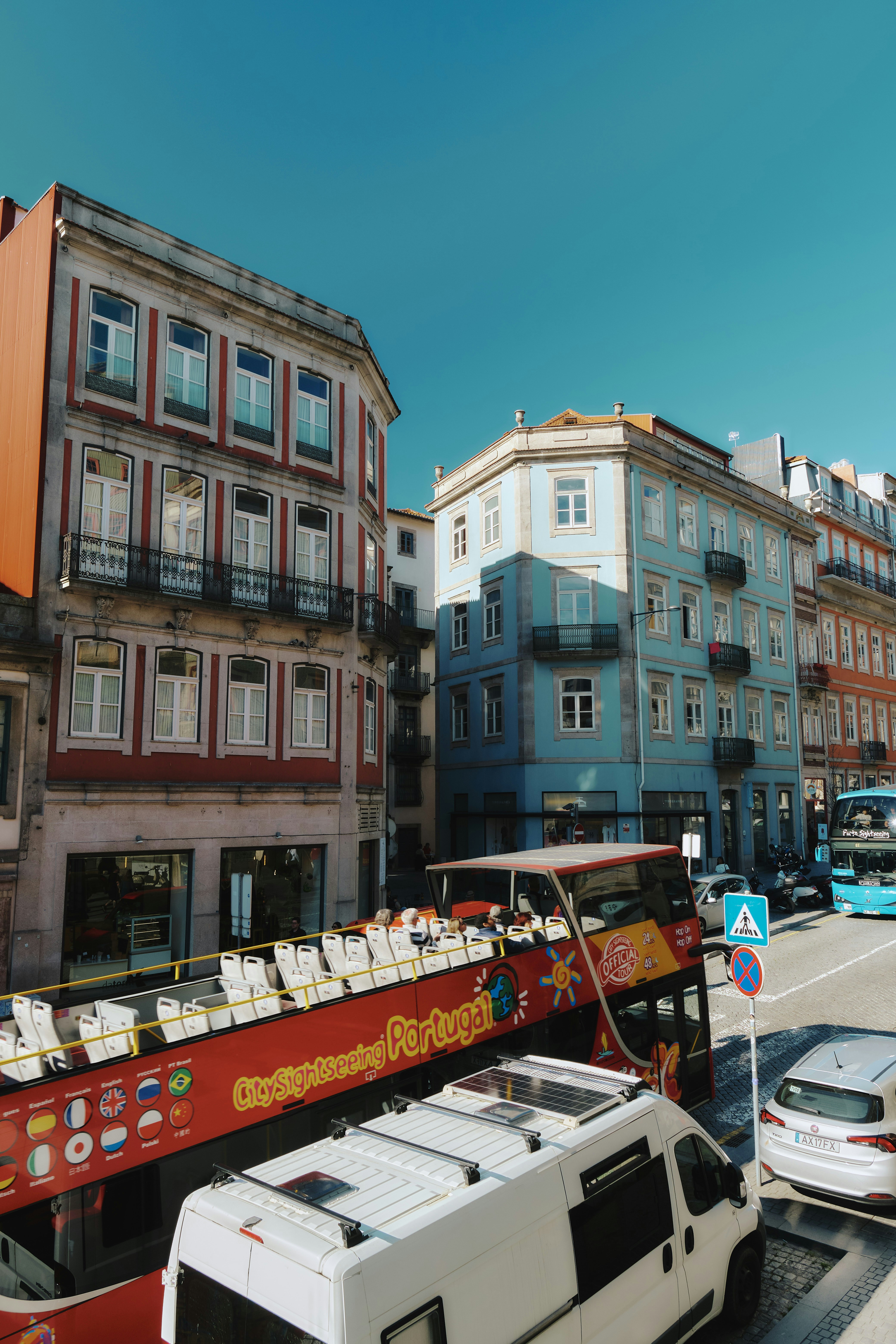Table of Contents
Portugal has emerged as a top destination for digital nomads, thanks to its excellent quality of life, affordable cost of living, and favorable fiscal policies. Whether you’re a freelancer, entrepreneur, or remote employee, Portugal offers a unique blend of modern amenities, cultural richness, and natural beauty that makes it an ideal place to live and work. This guide explores the many benefits of being a digital nomad in Portugal, focusing on fiscal advantages, lifestyle benefits, and practical tips for making the most of your stay.

Why Choose Portugal as a Digital Nomad?
Portugal’s popularity among digital nomads is no coincidence. The country offers a combination of factors that are highly attractive to remote workers:
- Quality of Life: Portugal boasts a high quality of life, with a pleasant climate, stunning landscapes, and a relaxed pace of living. The cost of living is relatively low compared to other Western European countries, making it an affordable destination for digital nomads.
- Connectivity and Infrastructure: Portugal has a robust digital infrastructure, with high-speed internet available in most urban and rural areas. Numerous coworking spaces, cafes, and networking events cater to the needs of digital nomads.
- Welcoming Culture: The Portuguese are known for their hospitality and friendliness, making it easy for newcomers to integrate and feel at home. The country’s emphasis on work-life balance is also a significant draw for those looking to escape the hustle and bustle of city life.
- Strategic Location: Situated in Western Europe, Portugal provides easy access to other European countries. Major cities like Lisbon and Porto have excellent international flight connections, making travel convenient for digital nomads.
Fiscal Advantages for Digital Nomads in Portugal
One of the main attractions for digital nomads in Portugal is the favorable fiscal policies. Here are some key fiscal advantages:
- Non-Habitual Resident (NHR) Tax Regime: The NHR program offers significant tax benefits for new residents. Under this regime, foreign-sourced income, including salaries, dividends, royalties, and pensions, can be tax-exempt for the first ten years of residence in Portugal. Additionally, Portuguese-sourced income from certain professions can benefit from a flat 20% tax rate.
- Digital Nomad Visa: Portugal has introduced a Digital Nomad Visa, which allows non-EU citizens to live and work in the country for up to a year, with the possibility of renewal. This visa is designed to attract remote workers and freelancers, providing a straightforward pathway to residency.
- Lower Cost of Living: The relatively low cost of living in Portugal means that digital nomads can enjoy a high standard of living without high expenses. Housing, food, transportation, and other daily costs are more affordable compared to many other European destinations.
- Healthcare: Portugal offers a high-quality healthcare system, both public and private, at a fraction of the cost compared to other Western countries. Digital nomads can access excellent medical care, making it a safe and secure place to live.
- Affordable Housing: Portugal offers a wide range of housing options to suit different budgets. Whether you prefer a modern apartment in Lisbon, a historic home in Porto, or a beachfront villa in the Algarve, you can find affordable and comfortable accommodations.

Practical Tips for Digital Nomads in Portugal
To make the most of your stay in Portugal as a digital nomad, consider the following tips:
- Choose the Right Location: Portugal has many attractive locations for digital nomads. Lisbon and Porto are popular choices due to their vibrant urban life and numerous coworking spaces. The Algarve offers beautiful beaches and a relaxed lifestyle, while smaller towns like Coimbra and Braga provide a quieter, more affordable option.
- Secure Your Visa: If you plan to stay in Portugal for more than 90 days, consider applying for the Digital Nomad Visa or the NHR tax regime. These options provide legal residency and significant tax benefits.
- Find Coworking Spaces: Portugal has a growing number of coworking spaces that cater to digital nomads. Spaces like Second Home in Lisbon, Cowork Central in Porto, and Lagos Digital Nomads in the Algarve offer excellent facilities and opportunities to network with other remote workers.
- Learn Basic Portuguese: While many Portuguese people speak English, learning some basic Portuguese can help you integrate better and make everyday interactions easier.
- Network and Socialize: Take advantage of the numerous meetups, workshops, and social events available for digital nomads in Portugal. Networking can lead to new opportunities and friendships, making your stay more enjoyable.
- Explore the Country: Portugal is a beautiful country with a lot to offer. Take time to explore its historic cities, stunning coastline, and scenic countryside. Traveling within Portugal is relatively easy and affordable, making it perfect for weekend getaways.

The NHR Tax Regime in Detail
The Non-Habitual Resident (NHR) tax regime is one of the most attractive fiscal policies for digital nomads in Portugal. Here’s a closer look at what it offers:
- Eligibility: To qualify for NHR status, you must not have been a tax resident in Portugal for the previous five years. You need to apply for NHR status once you have established residency in Portugal.
- Tax Benefits: The NHR regime provides a tax exemption on most foreign-sourced income, including salaries, dividends, royalties, interest, and pensions, for ten years. Portuguese-sourced income from high-value-added activities, such as those related to scientific, artistic, or technical fields, is taxed at a flat rate of 20%.
- Application Process: The application for NHR status should be submitted to the Portuguese tax authorities. It’s advisable to work with a tax advisor or lawyer to ensure that the application is correctly completed and submitted.
- Maintaining NHR Status: To maintain NHR status, you must meet the residency requirements, which typically involve spending more than 183 days in Portugal each year or having a primary residence in the country.

Popular Locations for Digital Nomads in Portugal
- Lisbon: As the capital city, Lisbon offers a dynamic environment with a rich cultural heritage. It has numerous coworking spaces, vibrant nightlife, and a thriving tech scene. The city’s historic neighborhoods, like Alfama and Bairro Alto, provide a charming backdrop for everyday life.
- Porto: Known for its historic architecture and port wine, Porto is a more laid-back alternative to Lisbon. The city offers a strong sense of community, beautiful river views, and a growing number of coworking spaces.
- The Algarve: This region is famous for its stunning beaches, golf resorts, and relaxed lifestyle. It’s an ideal location for digital nomads who prefer a quieter, more scenic environment.
- Madeira: An island in the Atlantic Ocean, Madeira offers a unique combination of natural beauty and modern amenities. It has become increasingly popular among digital nomads due to its mild climate and excellent internet connectivity.
- Braga and Coimbra: These smaller cities offer a quieter and more affordable alternative to Lisbon and Porto. They are known for their historical significance, cultural events, and friendly communities.
Quality of Life in Portugal
Living in Portugal comes with a myriad of advantages that make it an attractive destination for expatriates, retirees, and digital nomads alike. Here are some of the key benefits:
- Security: Portugal is considered one of the safest countries in the world, with low crime rates and a high standard of living. The country’s political stability and friendly population contribute to a sense of safety and well-being.
- Sunshine and Climate: Portugal enjoys over 300 days of sunshine each year, offering a pleasant climate that ranges from mild winters to hot summers. The Mediterranean climate is ideal for those who love outdoor activities and a relaxed lifestyle.
- Healthcare System: Portugal’s healthcare system is of high quality and is ranked among the best in Europe. Both public and private healthcare options are available, providing comprehensive medical services at affordable costs.
- Education: The country offers excellent educational opportunities, including international schools and universities with programs in English. This makes Portugal an attractive option for families with children.
- Cost of Living: The cost of living in Portugal is relatively low compared to other Western European countries. Affordable housing, food, and transportation allow residents to enjoy a high standard of living without breaking the bank.
- Low Taxes: Portugal offers favorable tax regimes, particularly for new residents and retirees. The Non-Habitual Resident (NHR) tax regime provides significant tax benefits, making it an attractive destination for those looking to optimize their financial situation.
- European Location: Strategically located in Western Europe, Portugal provides easy access to other European countries. Major cities like Lisbon and Porto have excellent international flight connections, making travel convenient.
- Quality of Life: The Portuguese lifestyle emphasizes work-life balance, family, and community. Residents enjoy a relaxed pace of life, delicious cuisine, and a rich cultural heritage that includes music, art, and festivals.
- Welcoming Culture: The Portuguese people are known for their hospitality and friendliness. Expats and newcomers often find it easy to integrate into the local community and feel at home.
- Natural Beauty: Portugal’s diverse landscapes, including stunning beaches, lush vineyards, and picturesque mountains, offer endless opportunities for outdoor activities and exploration.

Rich Culture and Heritage
Portugal’s rich culture and heritage are integral to its appeal as a destination for living and investing. The country’s history is marked by exploration, artistry, and a blend of various cultural influences that have shaped its unique identity.
Portuguese culture is deeply rooted in its historical achievements, including the Age of Discoveries, when Portuguese explorers like Vasco da Gama and Ferdinand Magellan played pivotal roles in global exploration. This legacy is celebrated in numerous museums, monuments, and historic sites throughout the country.
Music is a significant part of Portuguese culture, with Fado being the most famous traditional music genre. Recognized by UNESCO as an Intangible Cultural Heritage, Fado songs are characterized by their melancholic tunes and lyrics, often reflecting themes of love, loss, and longing. Live Fado performances can be enjoyed in many venues across Lisbon and Porto.
The Portuguese cuisine is another cultural highlight, renowned for its fresh seafood, flavorful spices, and delicious pastries. Iconic dishes such as bacalhau (salted cod), pastel de nata (custard tart), and piri-piri chicken are beloved both locally and internationally. Portugal’s culinary traditions are deeply intertwined with its history and geography, offering a rich and varied dining experience.
Festivals and celebrations play a central role in Portuguese life, with events like the Lisbon Sardine Festival, Porto’s São João Festival, and the Tomar Festival of the Trays showcasing the country’s vibrant traditions. These festivals often include music, dancing, and elaborate processions, providing a lively atmosphere and a deep sense of community.
Portugal’s architectural heritage is also remarkable, with its blend of Romanesque, Gothic, Manueline, and Baroque styles. Historic landmarks such as the Jerónimos Monastery, the Tower of Belém, and the Palace of Pena reflect the country’s architectural grandeur and artistic achievements.
In addition to its historical and cultural richness, Portugal is home to a thriving contemporary arts scene. Cities like Lisbon and Porto boast numerous galleries, theaters, and cultural centers, hosting a wide array of exhibitions, performances, and events. The growing number of creative spaces and cultural initiatives highlights Portugal’s commitment to fostering artistic expression and innovation.
Conclusion
Portugal’s combination of fiscal advantages, high quality of life, and welcoming culture makes it an ideal destination for digital nomads. The Non-Habitual Resident (NHR) tax regime and the Digital Nomad Visa provide significant financial benefits, while the country’s modern infrastructure and affordable living costs ensure a comfortable and enjoyable lifestyle.
Whether you’re looking to explore historic cities, relax on beautiful beaches, or immerse yourself in a vibrant cultural scene, Portugal has something to offer every digital nomad. By choosing Portugal, you can enjoy a unique blend of work and leisure, making it the perfect place to live and thrive as a digital nomad.
FAQs for Digital Nomads in Portugal
1. What is the Digital Nomad Visa and how can I apply for it?
- The Digital Nomad Visa allows non-EU citizens to live and work in Portugal for up to a year, with the possibility of renewal. To apply, you need to provide proof of income, a valid passport, health insurance, and accommodation details. Applications can be submitted to the Portuguese consulate or embassy in your home country.
2. What is the Non-Habitual Resident (NHR) tax regime?
- The NHR tax regime offers significant tax benefits for new residents, including tax exemptions on most foreign-sourced income for ten years and a flat 20% tax rate on Portuguese-sourced income from high-value-added activities. To qualify, you must not have been a tax resident in Portugal for the previous five years.
3. How do I apply for NHR status?
- To apply for NHR status, you must first establish residency in Portugal and obtain a Portuguese tax identification number (NIF). Then, submit an application to the Portuguese tax authorities. It is advisable to work with a tax advisor or lawyer to ensure the application is correctly completed.
4. What are the cost of living and housing options in Portugal?
- Portugal offers a relatively low cost of living compared to other Western European countries. Housing options range from modern apartments in cities like Lisbon and Porto to traditional homes and beachfront properties in the Algarve. The cost of rent and utilities is generally affordable, making Portugal an attractive destination for digital nomads.
5. What healthcare options are available for digital nomads in Portugal?
- Portugal has a high-quality healthcare system, both public and private. Digital nomads can access excellent medical care at affordable costs. It is recommended to have health insurance to cover any medical expenses during your stay.
6. Do I need to speak Portuguese to live in Portugal?
- While many Portuguese people speak English, especially in urban areas and tourist destinations, learning basic Portuguese can be helpful for everyday interactions and integrating into the local community.
7. What are the best cities in Portugal for digital nomads?
- Lisbon and Porto are popular choices due to their vibrant urban life, coworking spaces, and cultural attractions. The Algarve offers beautiful beaches and a relaxed lifestyle, while smaller cities like Braga and Coimbra provide quieter, more affordable options.
8. How can I find coworking spaces in Portugal?
- Portugal has a growing number of coworking spaces catering to digital nomads. Websites like Coworker.com and Workfrom.co can help you find coworking spaces in various cities across Portugal.
9. Can I bring my family with me if I move to Portugal as a digital nomad?
- Yes, you can bring your family with you. The Digital Nomad Visa and NHR tax regime allow for family reunification, enabling your spouse and dependent children to obtain residency permits as well.
10. How do I open a bank account in Portugal?
- To open a bank account in Portugal, you will need a Portuguese tax identification number (NIF), proof of address, a valid passport, and proof of income or employment. Most banks have English-speaking staff to assist you with the process.
Helpful Websites for Digital Nomads in Portugal
Government and Official Contacts:
- Portuguese Immigration and Borders Service (SEF)
- Website: SEF Portugal
- Contact: +351 808 202 653
- Ministry of Foreign Affairs (MNE)
- Website: Ministry of Foreign Affairs Portugal
- Contact: +351 217 929 700
- Portuguese Tax and Customs Authority (AT)
- Website: Autoridade Tributária e Aduaneira
- Contact: +351 217 206 707
- Embassy of Portugal in your country
- Website: Embassy Finder
General Information and Resources:
- Visit Portugal
- Website: Visit Portugal
- Contact: +351 211 140 200
- Expatica Portugal
- Website: Expatica Portugal
- Provides information and resources for expats living in Portugal.
Coworking and Networking:
- Coworker
- Website: Coworker
- Find coworking spaces in various cities across Portugal.
- Workfrom
- Website: Workfrom
- A community of remote workers and digital nomads sharing the best places to work.
- Digital Nomads Portugal Facebook Group
- Website: Digital Nomads Portugal Facebook Group
- A community for networking, sharing information, and finding support.
By leveraging these resources and understanding the benefits and practicalities of living in Portugal, digital nomads can enjoy a rewarding and enriching experience in this beautiful country.




















